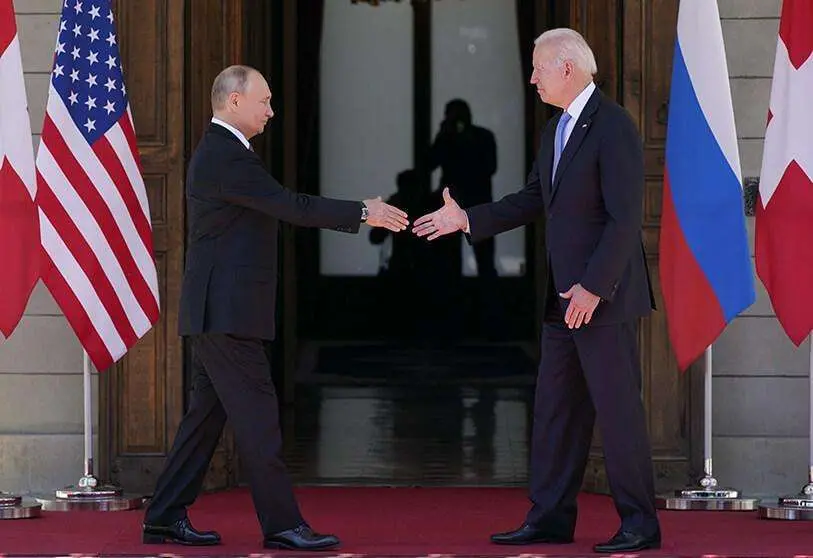Biden and Putin will discuss Ukraine and nuclear weapons on 10 January

De-escalating tensions in Ukraine is one of the international community's current priorities. For this reason, US President Joe Biden will discuss the crisis with his Russian counterpart Vladimir Putin at a meeting scheduled for 10 January. They are also scheduled to discuss nuclear arms control. "The United States looks forward to working with Russia," a spokesman for the US National Security Council told reporters. "When we sit down to talk, Russia can put its concerns on the table and we will also put our concerns on the table with Russia's activities," he added.
Meanwhile, as reported in the Russian press, the Russian Foreign Ministry confirmed these talks planned for early next year. Sergey Lavrov's ministry spokesman said that the main session of the Russia-US security talks will take place immediately after the New Year holidays. According to the TASS news agency, the minister said that "the schedule of the talks is important for Moscow and delaying them is unacceptable". Lavrov also stressed that Washington is the main negotiator on the issue of security guarantees.

"The talks will be held in Geneva," Deputy Foreign Minister Sergey Ryabkov told TASS. Biden and Putin already met in Geneva in June with the aim of bringing the two sides closer together. The two leaders recently held a virtual summit to discuss the crisis in Ukraine. During the conversation, Biden threatened Putin with 'strong economic and other measures' if he attacks Ukraine.
Following the meeting between Biden and Putin, the Russian authorities and the NATO Council are expected to meet two days later on 12 January. A summit with the Organisation for Security and Cooperation in Europe (OSCE) is also scheduled for 13 January.

The West accuses Russia of having deployed tens of thousands of new troops on the Ukrainian border. The US even warned of a possible Russian invasion. The Ukrainian authorities have confirmed Washington's warnings, saying they are prepared for a possible Russian aggression in early 2022. Ukrainian President Volodimir Zelensky also announced in late November that Ukrainian intelligence services had uncovered plans for an alleged coup orchestrated by 'representatives of Russia'. This coup, according to Zelensky, was planned for 1 and 2 December.
Moscow has also condemned NATO military activities near its border, highlighting maritime and air manoeuvres in the Black Sea and US short- and medium-range missiles deployed in Europe. In early November, Putin noted the 'increasing intensity of NATO aviation flights near Russia' and 'the presence of NATO ships with missiles in Baltic and Black Sea waters'.

The Kremlin has stressed its right to "secure its border in the medium and long term". Russia also opposes Ukraine's membership of the Atlantic Alliance, which it included among its security demands to Western countries. Moscow also urged the West to halt the deployment of armed forces in Eastern Europe. The US responded to these demands by calling them 'unacceptable' and again alluding to the Russian troop build-up on the border.








